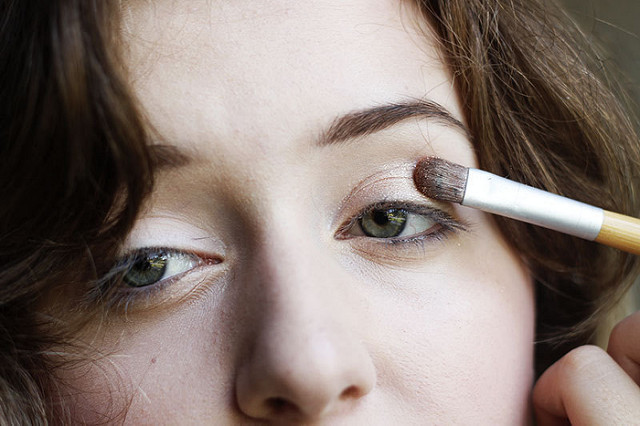Your Lips But Better . Or YLBB. That’s the slogan for a lipstick shade sold by nearly every makeup brand out there. Usually just a neutral, pink-tinted pigment, the YLBB represents a consistent theme in the makeup industry: if you can pay, you can look like an enhanced, polished, unblemished version of yourself. And people are paying– the global cosmetics market was $460 billion dollars in 2014 and is projected to reach $675 billion by 2020.
It’s a common critique of the makeup industry that it establishes beauty standards and exploits them for capital gain. But what about health standards? For decades, women’s health rhetoric has been blended into cosmetics marketing. Magazine pages selling women “a healthy glow” can be traced back to 1970s Maybelline and Cover Girl advertisements.
Women’s health doesn’t stop at the hospital, the pharmacy, or even the Capitol Building. For women, it’s not just about being healthy and getting the adequate healthcare– it’s about looking healthy too.
The convergence of health and beauty can be seen and heard in everyday life. Being told you look tired on a day you decide to not wear under-eye concealer. The makeup aisle being right next to the vitamins and Tylenol.
But now, using health to sell beauty isn’t just in a magazine ad, a commercial, or a store layout– it’s the brand itself.
Cosmetics start-up Glossier is the certified new kid on the block. Captained by Emily Weiss and staffed by under fifty other women, Glossier’s products and revenue are shocking the cosmetics world. And the reason? Glossier’s makeup is bringing health and beauty closer than they’ve ever been.
Glossier’s tagline is quite literally: Skincare as Makeup .
On the surface, Emily Weiss’s Glossier seems like an echo of Bobbi Brown’s start in the 1990s. Both brands are lead by women. Both brands interrupted a highly stylized trend in favor of a more natural approach to makeup: Bobbi Brown’s neutrals were a contrast to the bright colors of the 1980s; Glossier’s dewey, minimalist aesthetic is a pivot away from the matte contour look popularized by the Kardashian-Jenner clan.
But Glossier is building on to Bobbi Brown’s YLBB legacy with a repackaged approach to getting women to buy makeup to look like themselves. Their website is teaming with buzzy lines like “Skin is in” and “We think of our skincare like makeup.” But they also promote self-care, self-love, and choice. Right on the main page, they lay their cards out: “We’re laying the foundation for a beauty movement that celebrates real girls, in real life. Because ‘beauty’ should be fun, easy, imperfect, and personal.”
Looking at Glossier’s products and branding, they encapsulate the complexities of the health and beauty rhetoric. Because Glossier talks to their consumers like the really nice but really pretty cool girl, some think that the company is transforming the basic unit of the cosmetics industry from the conformative individual to the unique individual. But that really nice, really pretty cool girl can be sneaky too– Glossier is capitalizing on feminist language as well as the idea that women can buy their healthy appearance. And their products don’t come cheap.
Brands like Glossier and Bobbi Brown have been huge business boons for entrepreneurial women. The history of makeup has been studded with female leaders from the start: Annie Turnbo, a black entrepreneur sold her hair products door-to-door in 1900; Madame CJ Walker started her own cosmetics company in 1911; and wartime chemist Hazel Bishop invented no-smear lipstick in the 1950s. Emily Weiss belongs to the new generation in a long line of game-changing, entrepreneurial women.
But behind the brand names, profit reports, and nice girl marketing tactics, is a toxic dynamic. The concept of using makeup to adhere to the normative definitions of health creates a many-layered impact: it creates a costly standard that does not largely apply to men; it prioritizes the appearance of women over the genuine well-being of women; and it distracts from major gaps in healthcare services to women.
Makeup is makeup– it can be fun, expressive, inventive, or not used at all. But makeup can never have the impact of adequate healthcare. So, let’s replace YLBB with YHBB: Your Healthcare But Better.


There are no comments
Add yours